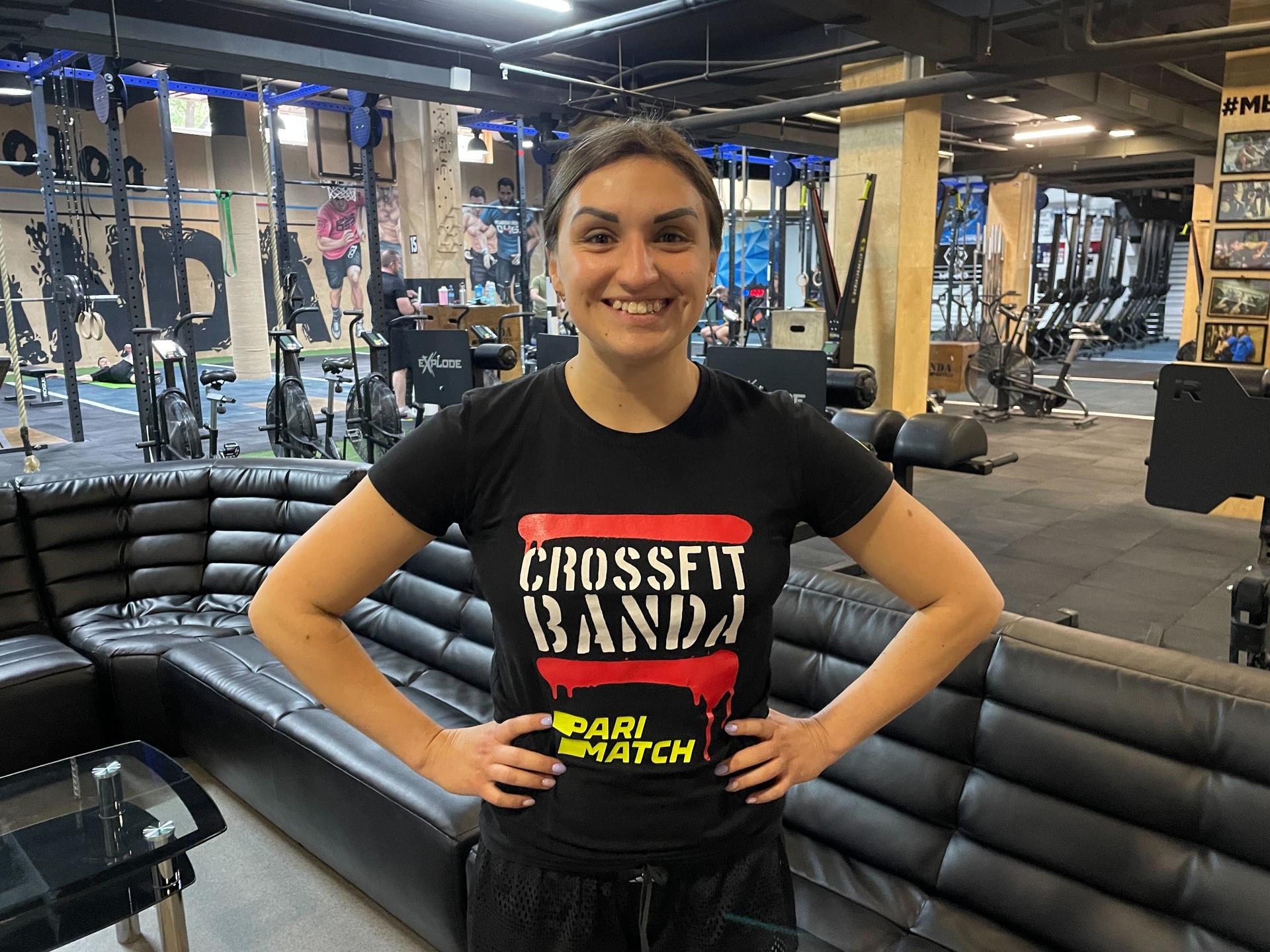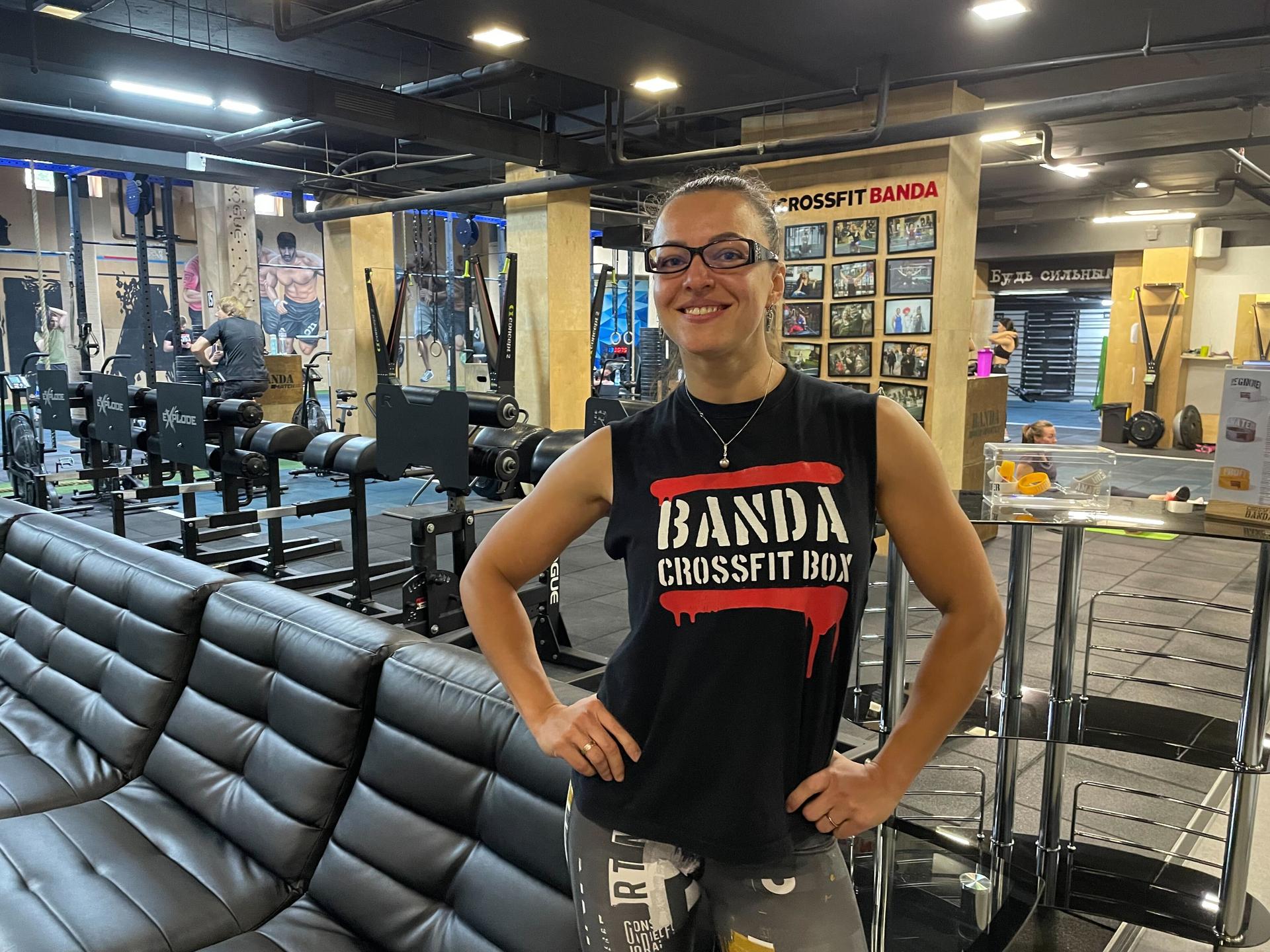Marina Galata, a coach at the CrossFit Banda gym in northern Kyiv, Ukraine, is here almost every day.
Galata said that sports and working out have been part of her life since she was a kid. That’s why she missed it so much when the war first began. Instead of exercising, Halata was glued to her phone following the news.
When Russia first invaded Ukraine, the capital, Kyiv, was under threat.
“I’m living on the 21st floor, first days there was a little bit scary to live like that high, so me and some of my friends we were staying here like first days,” she said. “The gym, it’s underground, so it was a little bit safer.”
Even so, Russian troops were seen in this area, right on the street outside of the gym.
One of Russia’s goals was to force regime change in the heart of the country. That didn’t happen. And in late March, Ukraine’s military pushed Russian forces out of the Kyiv region. That was a turning point for people here. But Kyiv residents are still processing the war’s early days, trying to begin to get back to something like normal daily life.
Alyona Shumakova, the gym’s director, said that they reopened because many members reached out saying they needed to work out as a distraction from the war.
But when they did reopen, things felt different, Shumakova said. Lots of members had already left the country. Some were still nervous about going back to their regular routines.
“There are no safe places,” Shumakova said.

Today, there are reminders that the war is far from being over, like the sandbags and military checkpoints all throughout the city and air raid sirens still go off frequently.
At a nearby café and bakery, Sofia Belan waits tables. She tells about what life was like here when the war started.
In the first months, the cafe acted like a volunteer center.
“We prepared a lot of meals for the grandmas, grandpas, children. We opened our doors,” serving food for free.
Belan said that many of her friends got out of the country right away. She said that she didn’t even think about leaving and spent most of her time at the café.
“This is my city. I was born in Kyiv. This is my country and I also make a little deals with the volunteers; they are also my family, so we stay together.”
Just a couple of blocks away, at the Gulliver Mall, people were shopping, going to the movie theater and hanging out.
Yegor Safonov works the register at a cosmetics shop. At first, he said, hardly anyone was at the mall. But gradually, more and more people started returning to Kyiv.
The shop started to get more customers. People want a distraction from the war, he said.
But things aren’t back to normal. Whenever there’s an air raid siren, he said, he rushes to the bomb shelter, and he feels a sense of panic.
Yulia Balyaba, a shopper here, said that she feels the same way.
“For me, it is a little bit difficult because I’m thinking about sirens, and it is strange, I am afraid of this.”
Balyaba is visiting Kyiv for the weekend. Right now, she lives in Vinnytsia, a city southwest of the capital. But she’s originally from Mariupol, a city now occupied by Russian forces. She left there back in March.
“I feel sad about the situation, and I want to go home to my parents, to my house. My parents are still in Mariupol, they live there, this is big problem for my life.”
Balyaba is in touch with her parents but she said that not being able to see them in person is tough. But shopping is a nice break from her daily routine.
On the bank of the Dnipro river, on a pedestrian walkway with shops, outdoor cafes, and bars, two cyclists, Bohdan Shevchyk and Anatoly Chernetskyi, were having a beer.
But Shevchyk said that he’s not 100% comfortable with drinking a beer right now.
“My colleague is near Donetsk, it’s too close to war, of course I support him, but I can’t feel myself relax, when he is under hell, he is in hell.”
Shevchyk said that getting out on a bike ride is a good way to clear his mind and remember what life was like before the war started.
We want to hear your feedback so we can keep improving our website, theworld.org. Please fill out this quick survey and let us know your thoughts (your answers will be anonymous). Thanks for your time!
